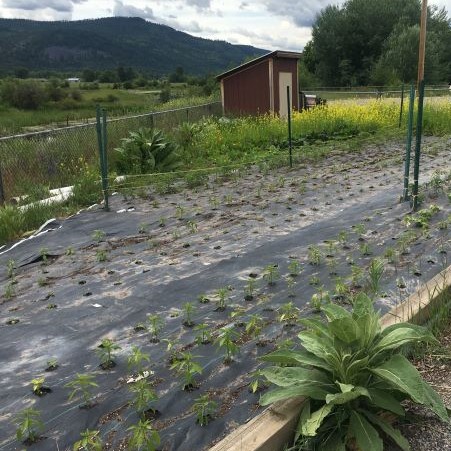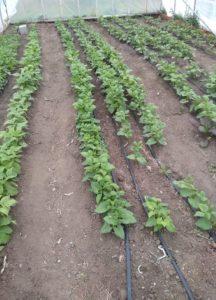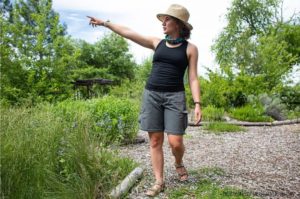By Olivia Kersey-Bronec
As the weather gets warmer, Montanans are getting outside and starting gardens across the state. The Covid-19 pandemic brought the fear of food insecurity to the forefront of many peoples’ lives who previously have been blissfully unaware of this issue. This seems to have sparked a desire for people to start their own gardens. According to the Montana Food Bank Network, one in nine Montanans experience food insecurity and 30 out of the 56 counties in Montana are considered food deserts. Food insecurity impacts a significant number of Montanans and yet often goes unacknowledged. Perhaps because it disproportionately affects Native American communities and families within Montana. When families and communities live in food deserts they experience more health issues, students struggle in school, and people tend to have lower incomes. During this Covid-19 pandemic the issue of food insecurity came into focus, while many people in Montana have been all too familiar with this issue for a very long time.
For the ‘18-’19 school year, I lived in Ashland Montana, off of the Northern Cheyenne Reservation, volunteering as a Jesuit Northwest AmeriCorp member for a year. My fellow volunteers and I came from all over the US and had never experienced a food desert before. I grew up on a farm and had access to fresh food year round. My Ashland community did our grocery shopping in Billings, two hours away, and went shopping about once a month. The weather and road conditions made traveling to Billings for food unreliable as well. I remember craving fresh vegetables and fruits, as our fresh food only lasted for the first two weeks of the month. On the Northern Cheyenne Reservation many families struggled with food insecurity and access to fresh food. Moving to Missoula was so drastically different. I now live three blocks away from a grocery store, and serve as an Energy Corp member whose service is dedicated to providing sustainable, fresh, food for the Frenchtown schools and the greater Missoula area. The experience of living in a food desert drew me to the service that I do today and solidified my desire to work for sustainable food production and end food injustice.
As summer begins and people are starting gardens, let us not forget the privilege of only knowing food insecurity in the time of a pandemic. The privilege of having the money, time, energy, and opportunity to grow gardens of our own. And that sustainable, fresh food is not an option for a significant number of Montanans today. I am continually reminded of this as I begin the outside garden at Frenchtown Schools. With our funding, donations, and support from the community we have the resources to grow food for the school. As a state, we have to invest in opportunities for schools within Montana to have similar programs to what we have here in Frenchtown. We must invest in growing food for students, on school campuses, with the students actively involved in the processes. This will provide a sustainable opportunity to combat the issue of food insecurity that faces our state.








